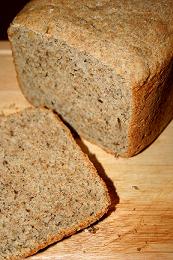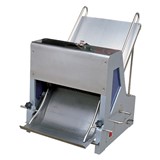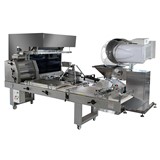"Iodine is essential for the healthy function of the thyroid gland to help it produce hormones that regulate metabolism, including the regulation of body temperature. Most people need only a small amount a day but we need iodine regularly because we cannot store large amounts in the body," Dr Brent said.
"Iodine is particularly important for the normal development of a baby's brain and nervous system, especially during pregnancy and in the first 2-3 years of life. Not having enough iodine during pregnancy and early childhood can cause developmental delay and lead to reductions in mental performance. This damage prior to 2-3 years of age is irreversible.
"Iodine can be found in many foods, but much of the Australian and New Zealand food supply is low in iodine as our ancient soils lack this important nutrient. In the past some of our iodine came from iodised table salt but now many of us are correctly following healthy eating recommendations not to add salt at the table or when cooking. This has contributed to widespread iodine deficiency throughout the population.
"The mandatory iodine fortification regulation requires the replacement of the existing salt in bread with iodised salt. This is preferable to people adding extra iodised salt to their food. The only exception is organic bread which is not required to contain iodine because of the rules about organic food.
"We chose to add iodised salt to bread as it is a commonly eaten food. However, we recognise that some people may not eat bread. Other sources of iodine in the diet, in addition to the fortified bread, include seafood, fish, dairy products, and eggs.
"If you are concerned about getting enough iodine in your diet, or if you are planning a pregnancy or breastfeeding, we suggest you consult your doctor or health professional for advice as you may need iodine supplements.
"In developing mandatory iodine fortification, FSANZ set up an Iodine Scientific Advisory Group which included experts in a variety of fields. Mandatory iodine fortification is expected to reduce inadequate iodine intakes from 43% to less than 5% in the Australian population. The increase in iodine intake is about the same as the iodine content of a large glass of milk and safe even for iodine sensitive individuals," Dr Brent concluded.
The iodine mandatory fortification standard was developed by FSANZ at the request of the Australia and New Zealand Food Regulation Ministerial Council that consists of health and food ministers from the Australian Federal, State and Territory Governments and the New Zealand Government.
The fortification of bread with the B group vitamin folic acid to reduce the risk of spina bifida became mandatory in Australia on 13 September 2009. Mandatory fortification of bread with iodised salt came into force in New Zealand on 27 September 2009.












